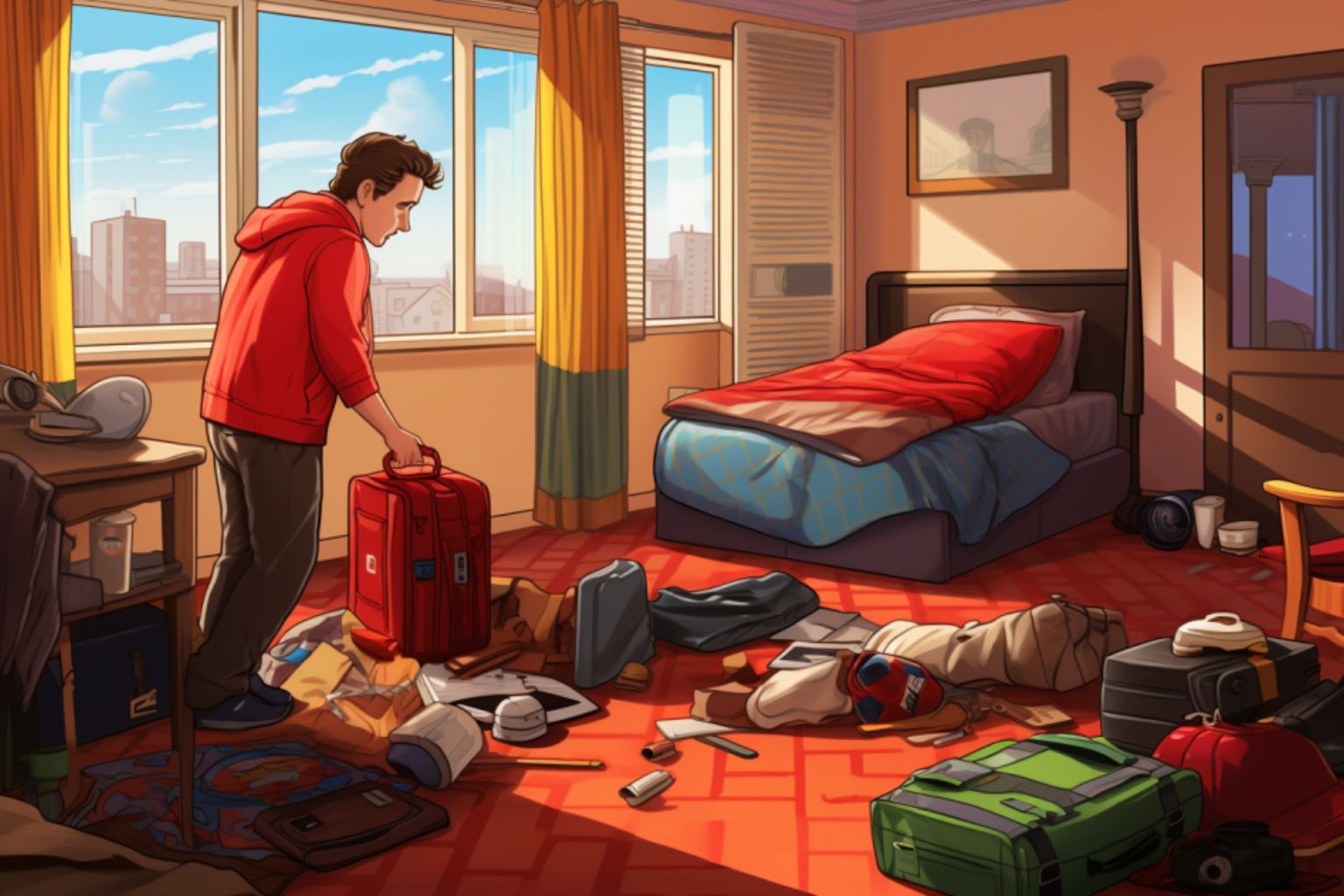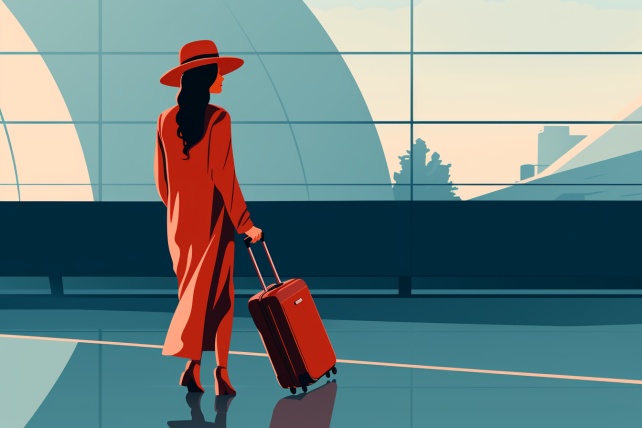Don’t lose it this summer. At least not the way Jennifer and Pat Mangold did when they stayed in the Florida Keys last August.
In their rush to beat holiday traffic, Mangold left $680 in cash in their room at Hampton Inn & Suites Islamorada.
“I didn’t realize this until we were 70 miles away in Key West, on a busy Labor Day weekend,” says Mangold, a nurse practitioner from Philadelphia. “Immediately I took my phone out to call the Hampton Inn. I looked at my missed calls and found that they were trying to reach me.”
Turns out, a housekeeper had found the cash. The hotel overnighted it to Key West at no charge.
“We were more than grateful,” says Mangold.
Summer vacation, high season for lost items
Not every lost story has a happy ending, and although the travel industry doesn’t keep any meaningful statistics on the items travelers lose every year, my own experience as an advocate for travelers suggests that summer is high season for losses.
And unfortunately, the lost items often stay lost.
Consider what happened when Leslie Bonner left her Kindle on a recent Hawaiian Airlines flight from Honolulu to San Francisco. Kindle readers are one of the most common misplaced items, and airlines have a procedure for tracking down the owners of these and other valuables. More on that in a minute.
“When I called the lost-and-found department the next day, a representative said, ‘You wouldn’t believe how many Kindles we have here,’ ” remembers Bonner, a retired college administrator from Merced, Calif. “The person I was talking to found it very amusing. I asked if they had one in a brown leather cover that had a built-in light, and she quickly answered ‘no.’ Now how did they know that, if they had so many, and she didn’t even take a second to look?”
Her Kindle stayed lost.
“I have an iPad now, and you can bet it will never see a seat pocket on a flight,” Bonner adds.
Retrace your steps and reclaim your lost travel treasures
With millions of Americans hitting the road this summer, I’m sure that this won’t be the only story I get about a lost item. Fortunately, you don’t have to become another statistic.
At a large hotel or a chain property, valuables that are left behind are normally logged into a lost-and-found database.
“If an item is found by hotel employees or other guests and is of a certain value,” it’s “placed in a secure location or a safe,” says John Wolf, a spokesman for Marriott International. “Guests are asked to identify and describe the lost property. When an item is claimed, the guest’s information is added to the log for our records.”
Hotel lost-and-found practices vary by state, country and hotel size. A smaller inn typically lacks a database and stores unclaimed items in a box or closet. But the process of tracking down your lost cellphone (Wolf says it’s the most common lost item at Marriott) or anything else you may leave behind is the same:
Contact the property as soon as possible and let it know which room you stayed in and when. Leave your contact information, too.
Lost and found
Car rental companies have a similar lost-and-found policy, according to Sharon Faulkner, the executive director of the American Car Rental Association. Normally, a company can track down the customer based on rental records, and a car rental location typically keeps lost items for at least six months. But reuniting drivers with their possessions is often a challenge.
“Problem is, people hide their valuables like cameras under the seats while vacationing and then forget them,” she says. “At times, we missed these items during preparation. Customers often called weeks after their rental when they remembered leaving behind belongings like cameras, binoculars, or purchased items like jars of jam, maple syrup, or seashells. These were often stashed under seats to protect them from potential theft.”
By then, it’s often too late. The car rental company has sold or given away the item. Faulkner gives the same advice as Marriott: Notify the car rental location about your loss promptly.
At the airport, things can get a little complicated. It’s difficult to generalize about the procedures for claiming lost items, because each airport is governed by state and local laws.
“At one airport, they may be required to hold an unclaimed item for six months,” says Deborah McElroy, a spokeswoman for the Airports Council International-North America. “At another, they may have to hold it for a year. And at another, 30 days. Three to six months is most common.”
If you’ve left something on a plane, here’s how it should work
Found items are normally cataloged in a database and held at the airport for about two weeks. The process is methodical, with the airline recording flight details, time, date, and a detailed description of the lost item. Then the item is sent to a warehouse at the airline’s headquarters. So if you’re flying on Delta Air Lines, your missing iPad will be taken to Atlanta.
All along, employees are supposed to make an effort to reunite you with your property. That’s why it helps for you to include your name, phone number and address. Include them on items such as cameras, cellphones and laptop computers. If an item isn’t claimed after six months, it’s sold or discarded, according to a Delta spokesman. Most other major airlines share that policy.
A common thread or two runs through the entire lost-and-found travel experience. The sooner you say something about your loss, the better the chances that you’ll get it back. Every hour something stays lost can count, because hotel rooms, rental cars and planes are cleaned regularly, or “turned” in industry parlance, which makes it more difficult to connect you with your missing object.
Attaching your name to a valuable item significantly increases the chance of recovery. Let’s just say that you don’t find a lot of name tags on merchandise at that legendary Unclaimed Baggage Center in Scottsboro, Ala., which every travel columnist I know has written about at least once.
Navigating travel’s maze of misplaced possessions
I’ve been both impressed and disappointed by the travel industry’s lost-and-found procedures in my own travels. Impressed with the Waterfront Hotel in Oakland, Calif., for instance, when it sent our electric toothbrushes to our next hotel in Sacramento a few years ago without charging us. And with Delta, which found a copy of a Bill Cosby book I’d left in my seat pocket on a flight to Salt Lake City. It had been a Christmas present. (Here’s our guide with the best travel advice.)
But I’m still waiting for that electric razor I left in my Breckenridge, Colo., hotel in March. And for that fuzzy pillow my daughter abandoned on her flight to Atlanta last year. I’m not holding my breath.
Bottom line: If a travel “expert” can lose something on a trip, then it can happen to anyone. So this summer, keep a close eye on your stuff. And tag it.




